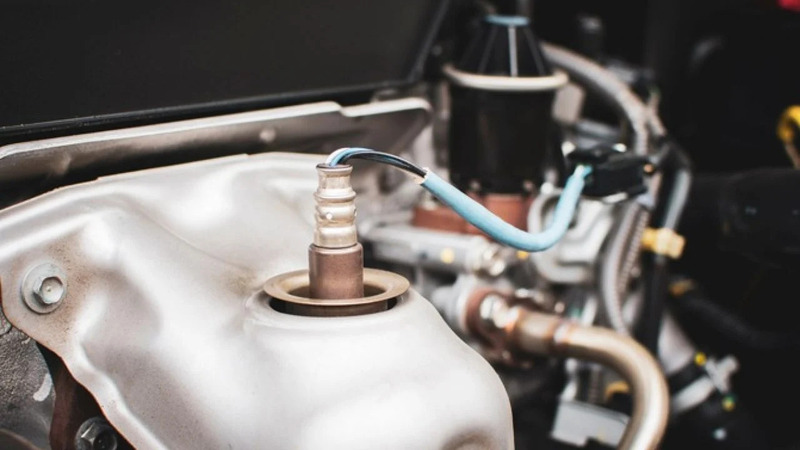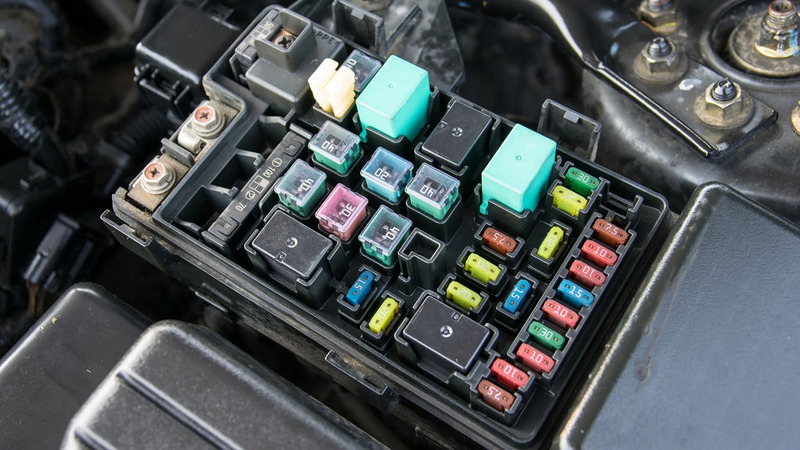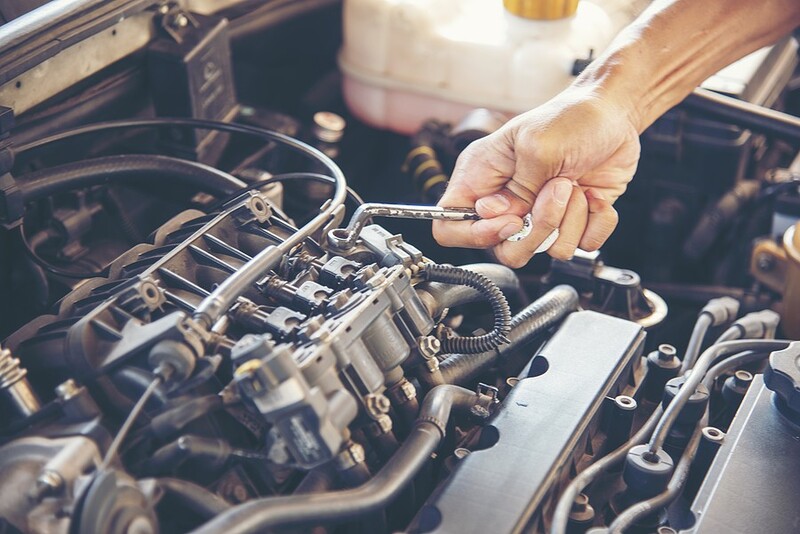Most cars in the 21st century are built with various types of sensors with different functions.
A sensor is an electronic device that helps the ECU gather data from different vehicle parts. The physical data collected is sent to the ECU for processing. If faulty, some sensors can cause a car not to start.
What sensors can cause a car not to start? In this article, we will critically examine the common sensors that can cause your vehicle not to start.
Let’s get started!
What Sensors Can Cause a Car Not to Start?
A major sensor that can cause a car not to start is the crankshaft position sensor which calculates the speed and position of the crankshaft. This information is worked on by the computer to determine when to fire the spark plugs. If the sensor is faulty, the spark plugs won’t fire.
There are other sensors that can cause this issue, here is a list of significant sensors that can cause your vehicle not to start.
A Bad Camshaft Position Sensor
The camshaft position sensor relates the position of the camshaft with regards to the crankshaft position to the ECU.
In essence, the camshaft and crankshaft position sensors work hand-in-hand. They both monitor and regulate the timing of the vehicle’s engine’s firing sequence.
Your vehicle may be hard to start or not start at all with a bad camshaft position sensor. Even if the vehicle’s engine starts, you are still bound to experience a “check engine” warning light, Reduced fuel efficiency, Car backfiring, Slow accelerator response, Black smoke from the exhaust pipe, and Transmission shifting problems.
A Malfunctioning Engine Coolant Temperature Sensor
The engine coolant temperature sensor relays the engine’s temperature to the ECU. This data helps the ECU optimize the air-fuel mixture sent into the combustion chamber.
A malfunctioning engine coolant temperature sensor can send misleading information to the ECU that would cause the vehicle not to start.

Also Read: Throttle Position Sensor Symptoms (Causes & Solutions)
A Faulty Mass Air Flow Sensor
The Mass Airflow Sensor Or Mass Air Pressure Sensor must function correctly to help regulate airflow into the engine.
The ECU uses the data from the Mass airflow sensor to optimize the combustion process to produce the highest energy output possible from the vehicle’s engine.
A faulty Mass Air Flow Sensor can cause problems ranging from hard starting to the car not starting. If, by chance, the vehicle’s engine starts, the driver will experience many challenges in moving the car.
The Fuel Pump Switch/Impact Sensor
Most car manufacturers, especially Ford Motor Company, sought a way to reduce the likelihood of explosions in car crashes. The safety feature they developed was the fuel pump switch, also known as an inertia switch (Impact sensor).
This inertia switch or impact sensor cuts the flow of electricity to the fuel pump, thereby reducing the risk of a spark in the fuel tank or the continuous pumping of fuel to areas with high heat.
If the impact sensor malfunctions and acts as though it has just experienced a crash, your car will not start, as fuel will not be able to get into your engine.
A Bad Brake Pedal Position Sensor Can Cause Hard Starting
One of the primary sensors that can cause a car not to start is the Brake Pedal Position Sensor (BPPS). The braking system is an essential part of a vehicle safety protocol.
Nowadays, manufacturers build vehicles with a primary safety feature whereby you must step on or activate the brakes before starting your car.
This safety feature ensures that the vehicle does not jerk or dash forward immediately after you put on the engine.
Now if the Brake Pedal Position Sensor (BPPS) is malfunctioning, you will step on the brake, and ECU will not receive that information, causing your car not to start.
A Malfunctioning Throttle Position Sensor
When accelerating, we have to push down on our throttle pedal to improve the amount of air and get into the combustion chamber.
A throttle position sensor relays the position per time of the throttle valve. These data help ECU optimize the air-fuel mixture entering the combustion chamber.
Suppose the throttle position sensor malfunctions and relates wrong information, like the throttle valve being fully closed or fully open. In that case, such information can cause the ECU to retract fuel from getting to the injector nozzles, and the vehicle will not start.
A Faulty Oil Pressure Sensor
A vehicle’s engine oil can be likened to the blood that runs in a human’s veins; without enough engine oil in a vehicle, its engine will get knocked(damaged) upon starting the car. The vehicle’s engine must always be well-lubricated with the optimal quantity of oil.
The oil pressure sensor acts as a safety umpire that monitors and relays the quantity of oil in the vehicle’s engine to the ECU.
In different models of vehicles, the oil pressure sensor can malfunction and relay a false low-pressure reading, which will result in the car not starting.
You can quickly troubleshoot a faulty pressure sensor by identifying if the oil pressure warning light is on.

A Spoilt Fuel Rail Pressure Sensor
A fuel rail pressure sensor is one of the primary sensors that can cause your vehicle’s engine not to start. You’ll agree that no car can run without fuel; therefore, any malfunctioning sensor in the fuel system can cause problems for the machine.
The fuel rail helps transport the flower from the fuel tank to the injector nozzles, and the fuel rail sensor allows the ECU to regulate the fuel reaching the injector nozzles by relaying fuel pressure flowing through the fuel rail.
A malfunctioning fuel rail pressure sensor in any vehicle can cause the car not to start.
Always Check the Crankshaft Position Sensor
The function of the sensor is to help your ECU regulate the timing and volume of fuel injected into your vehicle’s combustion chamber just before combustion occurs.
Without combustion in the engine, you will not be able to start your vehicle. The Crankshaft position sensor relays engine speed and crankshaft position data.
A faulty crankshaft position sensor can cause your vehicle to experience different problems, ranging from hard starting to inability to start.
How to Fix Sensors that Cause a Car Not to Start
If you can work on your vehicle with ease, you can check your car sensors using an OBD scanner, this will give you proper knowledge of the problem and which sensor might be at fault.
however, if you are not knowledgeable about using the scanner, it’s important to contact a professional to help solve the issue at hand.
Also Read: 7 Bad Speed Sensor Symptoms (+ Replacement Guide)
Frequently Asked Questions – What Sensors Can Cause a Car Not to Start?
Can an O2 sensor cause your car not to start?
The oxygen sensor will not cause the car to have starting problems
What is the most common engine starting problems?
The most common problem relating to engine starting problems is a dead battery.
What does an ignition failure sensor do?
An ignition failure sensor helps relay pulse signals to the ECU and tachometer regarding the ignition switch.
Conclusion – What Sensors Can Cause a Car Not to Start?
As shown in the article above, many sensors can cause your car not to start. Therefore you do not need to be scared if your battery is fully charged and your vehicle does not start. To fix a malfunctioning sensor, you can always visit a professional mechanic in your local vicinity.

